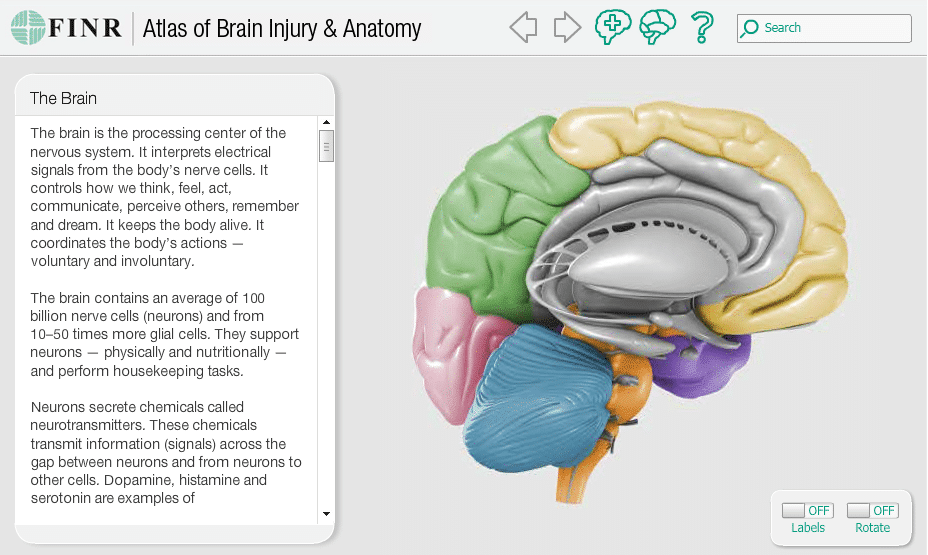
Why seek legal action for a traumatic brain injury (tbi) or spinal cord injury?
Approximately 1.5 million Americans per year sustain a brain and spinal injury, of those, 50,000 will die. Survivors can be affected the rest of their lives. If you or a loved one has suffered a TBI or a spinal cord injury due to someone’s neglect, a competent attorney can help you receive financial compensation to cover the numerous expenses involved. In addition to medical care, a survivor of these injuries often needs a combination of physical and neurological rehabilitation, as well as psychological counseling in order to deal with the many impairments that go hand-in-hand with a devastating injury.
Financial compensation awarded in a court of law is aimed at covering these expenses:
- Hospitalization
- Medical care throughout the person’s life
- Caregivers at home
- Rehabilitation
- Counseling and Psychiatric care
- Lost wages
- Expenses not covered by existing health insurance
- Travel expenses for medical care
- Various support services for the injured person’s family
- Funeral expenses
Even if you feel you are not ready to file a suit, consult one of our qualified lawyers as soon as possible so that you will know your options. We do not charge any fees upfront. In fact, we will only charge attorney’s fees if we obtain a financial settlement for you. If you don’t win, we won’t get paid a legal fee. Call us today for your free case evaluation 1.800.241.9779.
For a free legal consultation, call (205) 326-3336
Traumatic brain injury (tbi): get the facts
Approximately 1.5 million Americans per year sustain a traumatic brain injury (TBI), and of those, 50,000 will die. Those who survive a TBI can face effects that last a few days, or the rest of their lives.

What is Brain Trauma?
Brain trauma describes any injury to the brain caused by an impact or jolt to the head. The medical term for this is Traumatic Brain Injury or TBI. When your head shakes violently or an object impacts it, the brain can move within your skull and suffer significant damage. Although they’re less common, brain trauma can also describe injuries where the skull is broken or pierced, like a bullet wound.
Medical experts categorize traumatic brain injuries as mild, moderate, or severe, and they have accompanying symptoms that follow that same severity scale. You may have a traumatic brain injury and never know it, if all you feel is some dizziness and a headache. On the other hand, a car crash or sport injury could result in symptoms as severe as coma and brain death.
Many people who have TBIs can move on with their life quickly after they are assessed by a medical practitioner. Some TBI sufferers, however, may have worsening or new symptoms in the days or weeks after their injury. Persistent numbness, headache, or dizziness, in addition to new complications like seizures may require additional treatment.
The mental and psychological effects of TBIs are less discussed but as significant as the physical ones. Traumatic Brain Injury can cause personality or mood disorders and changes in behavior in adults. Children may experience educational setbacks or limitations that require lifelong intervention. A qualified traumatic brain injury lawyer can assess whether you may be owed damages for the persistent effects of your injury from the person or business that caused it.
Spinal cord injury: get the facts
Today in the United States, as many as 400,000 people are living with spinal cord injuries. Spinal cord injuries are the number one cause of paralysis. The two types of spinal cord injury are complete (traumatic), and incomplete (non-traumatic). Complete or traumatic injuries result in paraplegia or tetraplegia.
What Are Common Spinal Injuries?
The spine is the most important support structure in the body. It is a column stretching from the base of your skull all the way to your tailbone. You can injure the different parts of your spine in different ways. They include:
- The Vertebrae. The vertebrae are the individual parts that make up the whole of the spine. Individual vertebrae can be broken, directly impacting the bone, or compromised to cause injury to the surrounding nerves or the spinal cord.
- The Spinal Cord. The spinal cord is nerve tissue that connects the brain to the whole of the body, running through the protective vertebral column. Injury to the spinal cord can result in partial or complete paralysis.
- The Lumbar Spine. The lumbar region is the lower portion of your back which is commonly injured in lifting or pressure injuries. Injury can cause lifelong pain and difficulty with many kinds of physical activity.
- The Cervical Spine. The cervical spine constitutes the first few vertebrae below the brain. You probably think of it as the neck. Neck injuries can include whiplash from car crashes, sprains, and pinched nerves. Some of these can cause persistent pain and disability.
- The Vertebral Discs. Vertebral discs sit between each vertebra to both hold the spine together and to protect each vertebra from rubbing against the others. Damaging or displacing a disc, also known as “slipping a disc,” results in intense pain and difficulty moving.
These are only some of the many spinal injuries that can occur.
